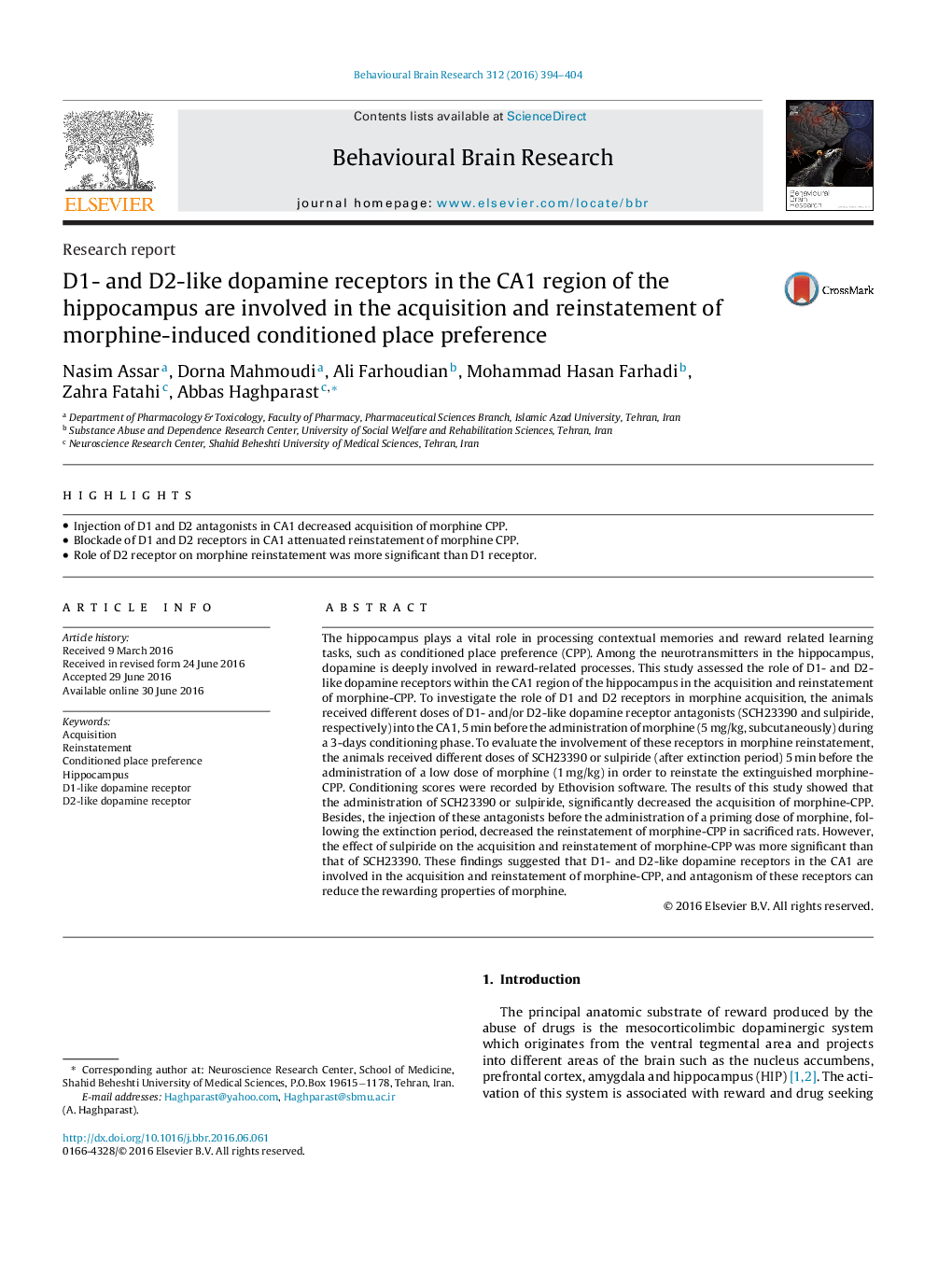| Article ID | Journal | Published Year | Pages | File Type |
|---|---|---|---|---|
| 4312091 | Behavioural Brain Research | 2016 | 11 Pages |
•Injection of D1 and D2 antagonists in CA1 decreased acquisition of morphine CPP.•Blockade of D1 and D2 receptors in CA1 attenuated reinstatement of morphine CPP.•Role of D2 receptor on morphine reinstatement was more significant than D1 receptor.
The hippocampus plays a vital role in processing contextual memories and reward related learning tasks, such as conditioned place preference (CPP). Among the neurotransmitters in the hippocampus, dopamine is deeply involved in reward-related processes. This study assessed the role of D1- and D2-like dopamine receptors within the CA1 region of the hippocampus in the acquisition and reinstatement of morphine-CPP. To investigate the role of D1 and D2 receptors in morphine acquisition, the animals received different doses of D1- and/or D2-like dopamine receptor antagonists (SCH23390 and sulpiride, respectively) into the CA1, 5 min before the administration of morphine (5 mg/kg, subcutaneously) during a 3-days conditioning phase. To evaluate the involvement of these receptors in morphine reinstatement, the animals received different doses of SCH23390 or sulpiride (after extinction period) 5 min before the administration of a low dose of morphine (1 mg/kg) in order to reinstate the extinguished morphine-CPP. Conditioning scores were recorded by Ethovision software. The results of this study showed that the administration of SCH23390 or sulpiride, significantly decreased the acquisition of morphine-CPP. Besides, the injection of these antagonists before the administration of a priming dose of morphine, following the extinction period, decreased the reinstatement of morphine-CPP in sacrificed rats. However, the effect of sulpiride on the acquisition and reinstatement of morphine-CPP was more significant than that of SCH23390. These findings suggested that D1- and D2-like dopamine receptors in the CA1 are involved in the acquisition and reinstatement of morphine-CPP, and antagonism of these receptors can reduce the rewarding properties of morphine.
